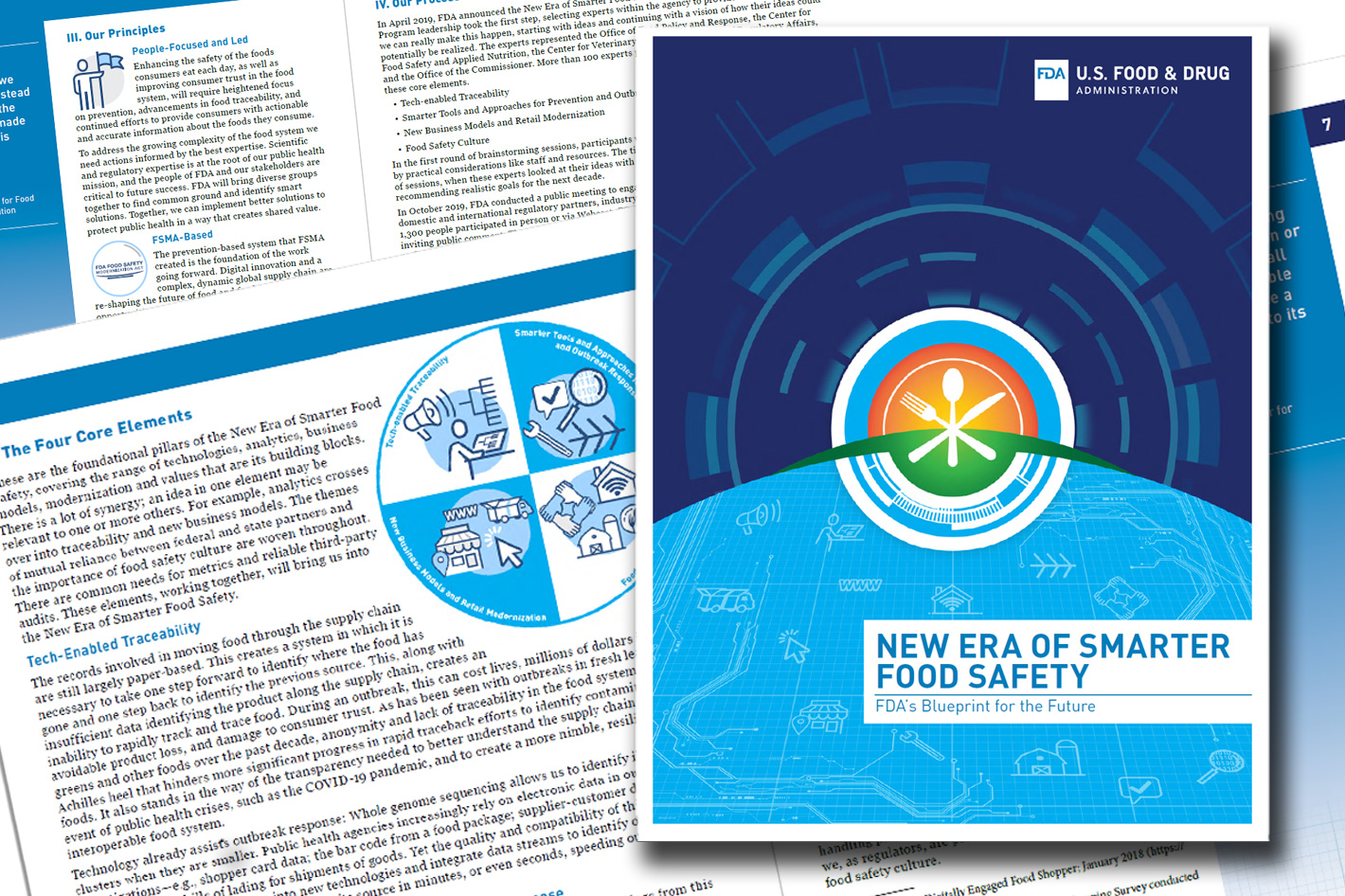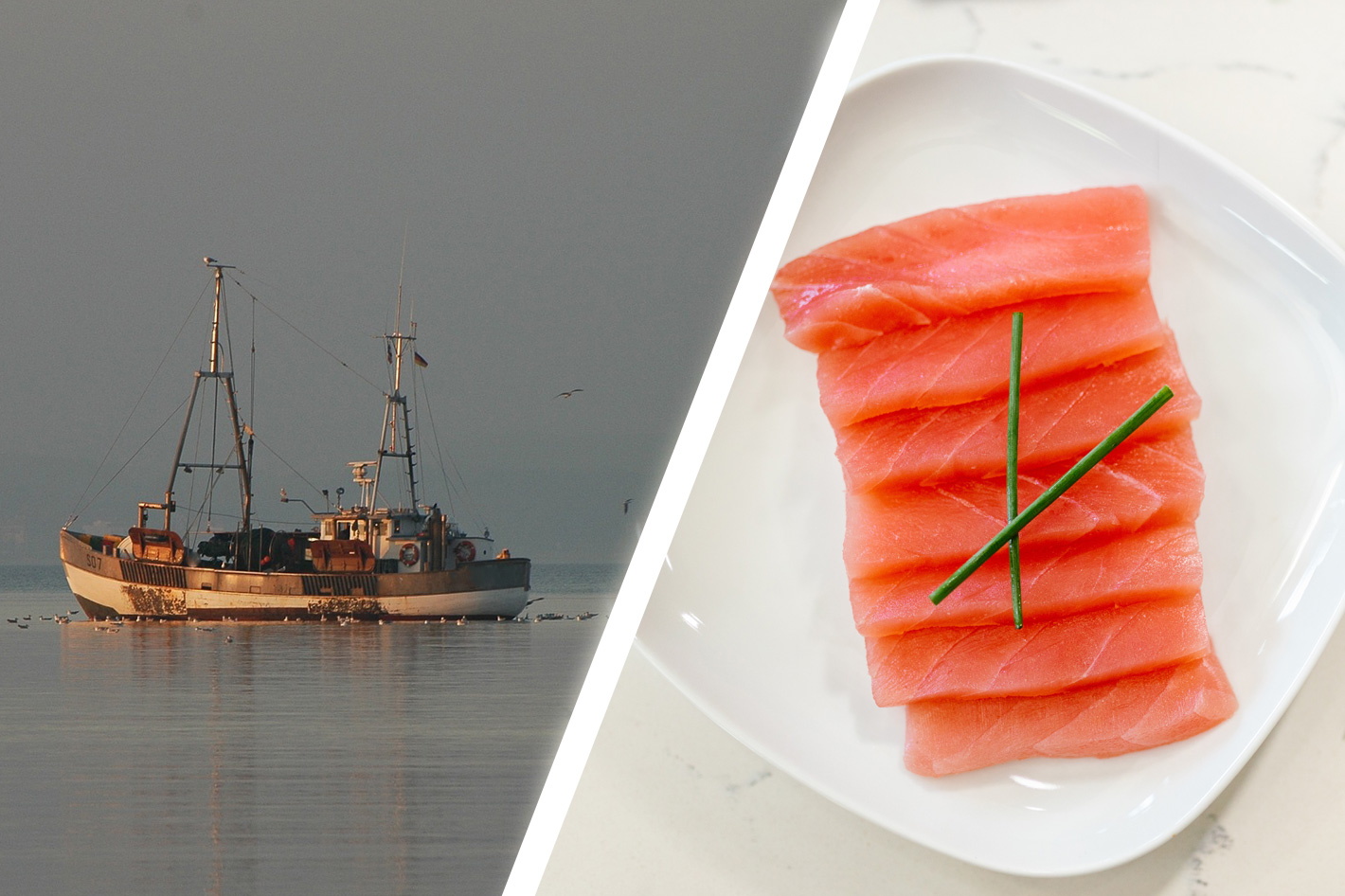The U.S. Food and Drug Administration (FDA) issued a final rule on food traceability. Foods subject to the final rule requirements appear on the Food Traceability List (FTL), which includes seafood.
Designed to facilitate faster identification and rapid removal of potentially contaminated food from the market, resulting in fewer foodborne illnesses and/or deaths, the FDA final rule on Requirements for Additional Traceability Records for Certain Foods (Food Traceability Final Rule) establishes traceability recordkeeping requirements, beyond those in existing regulations, for persons who manufacture, process, pack, or hold foods included on the Food Traceability List (FTL).
The Food Traceability List (FTL) rule requires businesses to track most seafood from the point of landing through the supply chain to the final point of sale. The list also includes includes fresh cut fruits and vegetables, shell eggs, and nut butters, as well as certain fresh fruits, fresh vegetables, ready-to-eat deli salads and cheeses.
At the core of the final rule is a requirement that persons who manufacture, process, pack or hold food on the FTL maintain records including Key Data Elements (KDEs) related to Critical Tracking Events (CTEs). Covered firms and farms, retail food establishments and restaurants will be required to provide information to the FDA within 24 hours, or some reasonable time to which the FDA agrees.
The final rule provides full and partial exemptions for some entities and foods, such as certain small producers, small retail food establishments and restaurants, farms that sell food directly to consumers, and foods that receive certain types of processing, among others. The final rule aligns with current industry best practices and covers domestic firms, retail food establishments, restaurants, and farms, as well as foreign firms and farms producing food for U.S. consumption.
The Food Traceability Final Rule is a key component of the FDA’s New Era of Smarter Food Safety Blueprint and implements Section 204(d) of the FDA Food Safety Modernization Act (FSMA). The blueprint is centered around four core elements:
- Tech-enabled Traceability
- Smarter Tools and Approaches for Prevention and Outbreak Response
- New Business Models and Retail Modernization
- Food Safety Culture
 U.S. imports up to 85% of its seafood
U.S. imports up to 85% of its seafood
Oceana, the largest international advocacy organization dedicated solely to ocean conservation, reacted to the announcement. “Oceana commends the Food and Drug Administration for releasing this long-awaited rule requiring traceability for high-risk foods, including most seafood. The path seafood travels from the fishing boat to our dinner plate can be complex and opaque. By having key information follow the fish through the supply chain, there is less an opportunity for a bait and switch, that can cheat consumers and impact their health,” said Marla Valentine, Oceana’s illegal fishing and transparency campaign director.
“The FDA rule paired with the Seafood Import Monitoring Program means – continued Marla Valentine - that some seafood in the U.S. will now be traced from the fishing boat to the dinner plate. We encourage the Biden administration to expand both programs so that all seafood sold in the United States is safe, legally caught, responsibly sourced, and honestly labeled.”
Advocates for the U.S. shrimp fleet welcomed the FDA rule, which will take full effect Jan. 20, 2026. Vastly overwhelmed by the volume of imports, the domestic industry is always pressing federal agencies and Congress for stricter controls.
The Southern Shrimp Alliance noted the FDA notice confirms that shrimp will remain on the agency’s Food Traceability List and subject to the new requirements.
“The FDA rejected arguments from seafood importers that the traceability rules should not attach to shrimp products because shrimp posed minimal health risks to U.S. consumers,” the Southern Shrimp Alliance noted in a Nov. 18 update to its membership.
“The FDA also rejected arguments from importers that barring the importation of food that failed to abide by the traceability requirements violated the United States’ obligations under the World Trade Organization’s agreements. The agency explained that the traceability requirements were being applied both to domestic and foreign food producers.”
Seafood fraud, specifically species substitution, occurs regularly, cheating consumers and putting public health and the oceans in jeopardy. A global review of seafood fraud studies around the world found 1 in 5 of more than 25,000 sample of seafood tested worldwide was mislabeled.
The U.S. currently imports up to 85% of its seafood, according to NOAA Fisheries. That seafood often follows a complex path from boat to plate, creating multiple opportunities for seafood fraud that can occur at each step in the supply chain. Seafood fraud cheats consumers, and can expose them to potential health risks.
According to Oceana, seafood fraud complicates consumers’ ability to differentiate what is safe and what is potentially dangerous. With over 2,000 different species of seafood from all over the world now available for sale in the U.S., it is unrealistic to expect the American consumer to be able to independently and accurately determine what fish is really being served.
Seafood in general is extremely sensitive to proper handling and refrigeration, and in some cases can cause severe illness if not handled correctly. Despite these risks, consumers are often given inadequate, confusing, or misleading information about the seafood they purchase because of weak regulations. Each year in the United States, around 260,000 people get sick from contaminated fish alone and fish are the most common food category implicated in foodborne illness outbreaks.
In January 2021, Oceana released the results of a nationwide poll finding that Americans overwhelmingly support policies to end illegal fishing and seafood fraud. Included among the key findings, 89% of voters agree that imported seafood should be held to the same standards as U.S. caught seafood. Additionally, 81% of voters say they support policies that prevent seafood from being sold in the U.S. that was caught using human trafficking and slave labor.
Eighty-three percent of voters agree that all seafood should be traceable from the fishing boat to the dinner plate, and 77% support requirements for all fishing vessels to be publicly trackable. The findings show widespread bipartisan support for policies aimed at increasing transparency and seafood traceability.
NF associate editor Kirk Moore contributed to this story.







